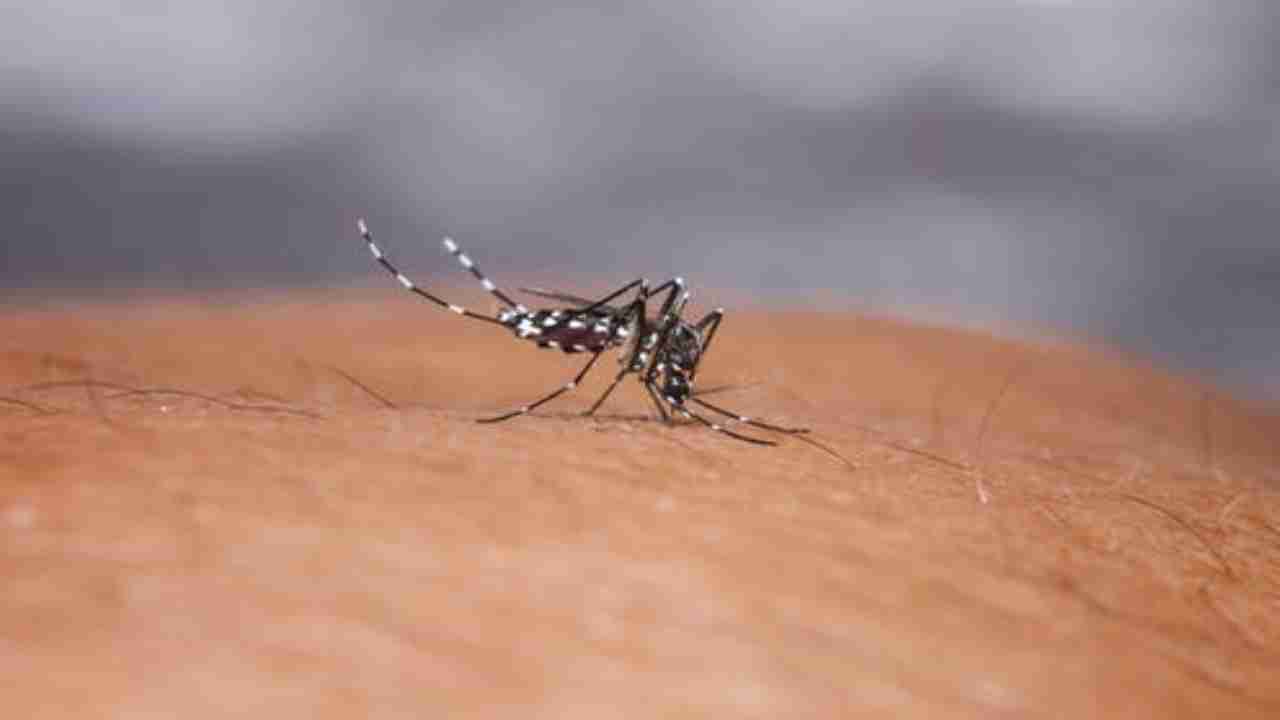
Stress on community engagement: Its important to sensitise and educate the community on the risks of mosquito borne diseases
SMC recorded 559 dengue cases since January
SANKHA GHOSH, SNS, SILIGURI, 18 SEPTEMBER 2022: At a time when questions are being raised on t he awareness level of the common people, researchers have called for community engagement on dengue prevention.
An insect biologist, Prof Dhiraj Saha, said it was important
to sensitise and educate the
community on the risks of mosquito borne diseases. Prof
Saha stressed on intensified
mosquito and virus surveil-
lance. "Dengue virus, one of
the most dreadful human
pathogens, is a regular phenomenon in India The virus
is transmitted to humans
through the bite of Aedes
mosquitoes, namely Aedes
aemti and Aedes albopictus.
More than I lakh cases of
dengue occur every year in
India. I believe that there
should be involvement at the
community level to encourage participation and mobilization for sustained vector
control. At the same time, the
high population density along
with lack of awareness regarding the disease has lead to its
efficient circulation," he said.
The Siliguri Municipal Corporation, which has recorded 559 dengue cases since
January, said the awareness
level among a section of the
people is still low, despite
widespread campaigns, especially on overall cleanliness,
accumulation of fresh stagnant
water in artificial containers
in households and non-cooperation with health workers
who visit houses.
Prof Saha, who teaches
insect biology at the depart-
neat of zoology, North Bengal University, has conducted researches on a wide range
of subjects, including insecticide resistance of the dengue
mosquito in north Bengal.
One of his recent studies has
revealed that the Aedes albopictus had developed resistance
to conventional insecticide and
that gene mutation in the
Aedes had caused the Aedes
to be more virulent in dengue
endemic areas of Siliguri sub-
division, including Matigara,
Naxalbari, and Sukna in Darjeeling district. His studies
were published in the peer-
reviewed open access reputed scientific journals like Acta
Tropica, an International journal on infectious diseases
that covers public health sciences and biomedical research,
Plos One, Scientific Reports-
a journal Nature group, and
others. According to him,
there should be active neon-
holing and surveillance of
vector abundance, distribution, and resistance status
against commonly used insecticides.
"Mass awareness is
inevitable in proper prevention of this disease. Along
with this, species composition
should be carried out to deter-
mine effectiveness of control
interventions; Prospectively
monitor the prevalence of
virus in the mosquito pop u-
lat ion, with active screening
of sentinel mosquito collections; Vector surveillance can
be combined with clinical
and environment surveillance,- Prof Saha said.
Siliguri Mayor Gautam Deb, meanwhile, said public
awareness and their involve-
matt were very important,
especially during this situation.
"Our efforts are to make
people participate at a large
scale and continuously work
to tackle such situations round
the year," he said.
According to Darjeeling
district magistrate S Ponnambalam, they had involved
representatives of anganwadi centres, gram panchayat,
and frontline health workers
like accredited social health
activists. "We will also engage
self help group members for
awareness generation at the
community level in the next
few days," he said.
According to Prof Saha,
during times of Covid -19,
immediate measures should
be taken for proper prevention of dengue and to reduce
the menace of this viral dis-
ease. "More than half a billion
people worldwide are at risk
of mosquito-borne diseases.
Due to lack of specific modifications, suitable vaccination
and development of drug
resistance in pathogens, the
only method to minimize the
risk remains prevention of
the disease, mainly through
control of the mosquito population.
North Bengal districts have
been hot spots for vector-
borne diseases. As it records
seasonal outbreaks of malaria, dengue and chikungunya,
this area houses several different potential mosquito
vector species."

0 Response to "Stress on community engagement: Its important to sensitise and educate the community on the risks of mosquito borne diseases"
Post a Comment
Disclaimer Note:
The views expressed in the articles published here are solely those of the author and do not necessarily reflect the official policy, position, or perspective of Kalimpong News or KalimNews. Kalimpong News and KalimNews disclaim all liability for the published or posted articles, news, and information and assume no responsibility for the accuracy or validity of the content.
Kalimpong News is a non-profit online news platform managed by KalimNews and operated under the Kalimpong Press Club.
Comment Policy:
We encourage respectful and constructive discussions. Please ensure decency while commenting and register with your email ID to participate.
Note: only a member of this blog may post a comment.